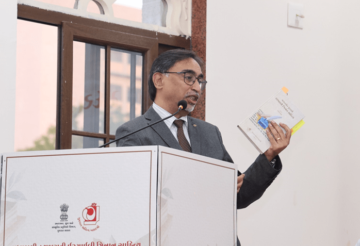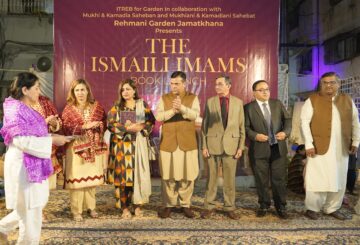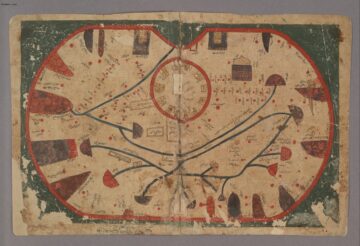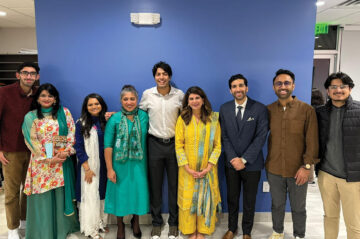The IIS hosted a book launch at the Ismaili Centre in Lisbon to launch two recent publications: Spiritual Quest: Reflections on Qur’anic Prayer According to the Teachings of Imam ‘Ali and the Portuguese translation of Justice & Remembrance: Introducing the Spirituality of Imam ‘Ali. The event was attended by Dr Reza Shah-Kazemi, the author of the books, as well as a number of local scholars, diplomats and policymakers.
The event began with opening remarks from the Institute’s Communications Manager, Asif Alidina, who introduced the Institute’s role as an academic centre that promotes scholarship on Muslim societies and civilisations. In particular, he highlighted the Institute as a resource for scholars, policymakers and others who wish to learn more about Muslim societies, especially in the areas of Qur’anic, Shi‘i and Ismaili studies.
Dr Reza Shah-Kazemi then introduced both publications by speaking about Imam Ali’s approach to the themes of intellectuality and pluralism. Quoting Imam Ali, where he says that ‘The excellence of the intellect lies in the appreciation of the outward and the inward beauty of things’, Dr Shah-Kazemi emphasised the need to understand the human intellect as a multi-faceted faculty of consciousness, comprising not just rational, but also moral, spiritual and even aesthetic dimensions.
Dr Shah-Kazemi noted that one of the key purposes of divine revelation, according to Imam Ali, is ‘to unearth for people the buried treasures of their own intellects’. In the light of this reciprocity between intellect and scripture, Dr Reza Shah-Kazemi addressed the question of the plurality of faiths and cultures as expressed in the Qur’an and referenced several verses that present a pluralistic and tolerant view of human diversity in relation to the principles of tawhid, rahma andhikma.
The launch concluded with an engaging discussion with the audience, hosted by Professor António Dias Farinha, Director of the Instituto de Estudos Árabes e Islâmicos da Universidade de Lisboa (Institute of Arabic and Islamic Studies at the University of Lisbon).






